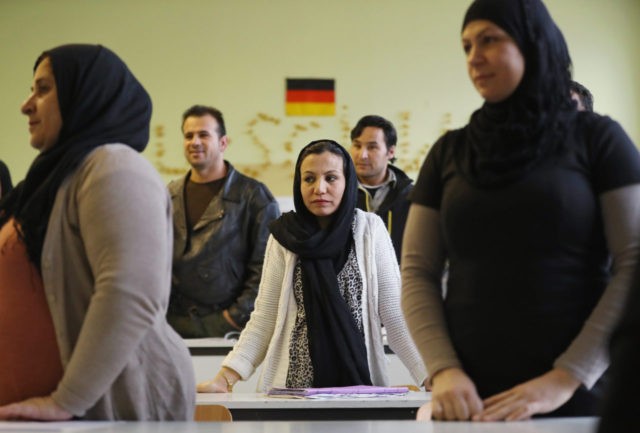Fewer than three per cent of the 1.2 million migrants who came to Germany in the last two years have found employment, newly released government figures show.
Of the 34,000 who have managed to find a job within the last 11 months, nearly a quarter (22 per cent) are on temporary contracts, according to statistics from the German government’s Institute for Labour Research (IAB).
A further 20 per cent are on zero hours contracts. 57 per cent of those falling into these two categories are employed in the hospitality industry, Süddeutsche Zeitung has reported.
The figures pertained to migrants from the eight major asylum countries of origin including Syria, Iraq, and Afghanistan.
406,000 jobseeking migrants are currently registered with employment agencies and job centres, of whom 160,000 are recorded as unemployed.
Joachim Möller, director of the IAB, said: “If we manage to get 50 per cent of them into work which pays for their lives in five years, that’d certainly be a success.
“But it would be an illusion to believe that we will manage to find jobs for a decent proportion of refugees in well-paid industry jobs like car manufacturing.”
However, the migrant crisis has created around 60,000 jobs for Germans in social work, teaching, public administration, and security, Möller said.
He added that the full effects of the migrant influx will mostly likely only be properly known in five to ten years’ time. “It probably won’t lead to us making money, but diversity can have positive effects,” he said.
Meanwhile, the government’s planned one-euro-job scheme to provide migrants with basic work has stalled. Labour minister Andrea Nahles (SPD) had hoped that the programme, launched on August 1, would create 100,000 jobs for the migrants, but so far only 5,000 have been created.
The migrants themselves have shown little enthusiasm for the programme. In August, Breitbart London reported how migrants in the town of Waldenburg had refused to take the jobs, saying they didn’t have to as they were there on invitation from German Chancellor Angela Merkel.
“It was subsequently argued by these people that they are guests of Mrs. Merkel and guests do not have to work,” the town’s mayor, Bernd Pohlers, said.

COMMENTS
Please let us know if you're having issues with commenting.